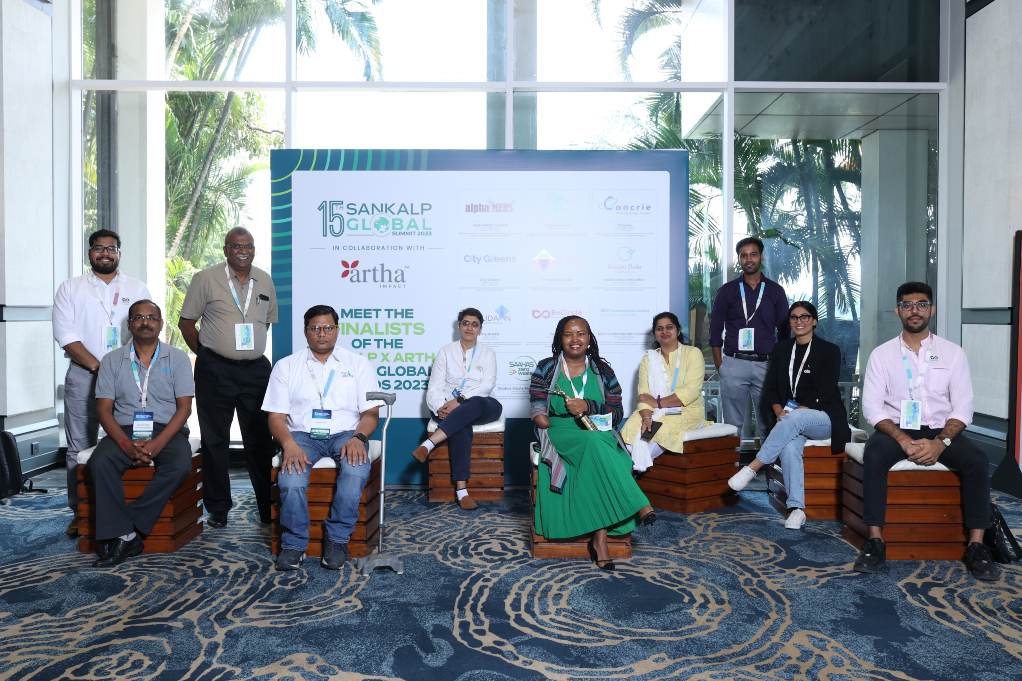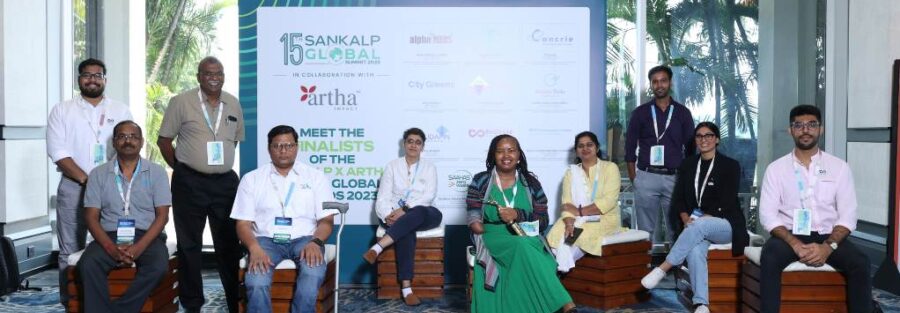

As the world grapples with the ever-increasing challenges of climate change, startups from emerging economies are coming up as crucial players in the race toward sustainability. The innovative spirit inherent in these enterprises is driving the development of groundbreaking solutions that have the potential to reshape industries and contribute significantly to global climate goals.
Unlike established corporations, startups are often unencumbered by legacy systems, allowing them to adopt and implement green technologies swiftly. They are uniquely positioned to disrupt traditional industries and introduce sustainable practices.. This agility enables them to experiment with novel ideas and adapt quickly to market demands, making them invaluable contributors to the fight against climate change.
Collaboration is a key aspect of the startup ecosystem, and it plays a vital role in the fight against climate change. Startups often collaborate amongst themselves, and with each other, with established companies, research institutions, and government bodies to pool resources, share knowledge, and collectively work towards common sustainability goals.
The success of startups in the fight against climate change goes beyond individual enterprises. It involves the creation of a green ecosystem where sustainable practices become the norm rather than the exception.
As startups champion eco-friendly technologies and business models, they inspire larger corporations to adopt similar practices, creating a ripple effect throughout the business landscape. Startups continue to drive change and set new benchmarks for sustainability, and their impact on the global climate fight is bound to intensify, offering hope for a greener, more resilient planet.
At the heart of all of this lies the critical lever of catalytic capital. Estimates indicate that climate finance must increase by 590% to $4.35 trillion annually by 2030 to achieve global climate objectives. This injection of capital is crucial for startups to scale their operations, conduct research and development, and bring innovative solutions to market faster.
The success stories of Angaza Foods, Strawcture Eco, Hasiru Dala Innovation, and REVY Environmental Solutions underscore the power of startups to develop and implement sustainable practices across diverse industries, as evidenced at the recently concluded 15th Sankalp Global Summit 2023 where each of them received USD $20,000 as winners of the Sankalp x Artha Impact Global Awards.
Angaza Foods: Cultivating Green Prosperity
Angaza Foods is a trailblazer in the agricultural sector, particularly in the export of fresh fruits, with avocados taking center stage in their portfolio. What sets them apart is their dual commitment to environmental sustainability and economic growth. Beyond exporting fresh produce.
Angaza Foods has pioneered the production of avocado oil, a versatile product used for culinary purposes and as a key ingredient in hair care products. By creating a market for avocado oil, the company not only adds value to its primary product but also promotes sustainable farming practices. This innovative approach fosters a circular economy, benefitting both the environment and local economies.
Strawcture Eco Pvt. Ltd.: Building a Sustainable Tomorrow
Strawcture Eco Pvt. Ltd. is revolutionizing the construction industry with its commitment to carbon-negative materials. By utilizing alternate natural feedstock, the company produces materials that actively offset the embodied carbon footprint of buildings. Architects, designers, and project management consultants (PMCs) play a pivotal role in integrating Strawcture Eco’s products at the design stage.
This forward-thinking approach not only reduces the environmental impact of construction but also educates and influences key decision-makers in the industry. Strawcture Eco exemplifies how startups can drive change by providing sustainable alternatives in sectors traditionally associated with high carbon emissions.
Hasiru Dala Innovation Pvt. Ltd.: Pioneering Inclusive Circularity
Hasiru Dala Innovation Pvt. Ltd. stands out for its mission to create a waste-free world, guided by the principle of Inclusive Circularity™. The startup is dedicated to integrating waste pickers into the evolving circular economy value chain. By developing innovative circular economy business models, Hasiru Dala empowers waste pickers to actively participate in waste management, recycling, and upcycling.
This not only addresses environmental concerns but also fosters social inclusivity and economic empowerment. Hasiru Dala’s approach exemplifies how startups can be catalysts for positive change by prioritizing inclusivity in their sustainability initiatives.
REVY Environmental Solutions Pvt. Ltd.: From Waste to Resource
REVY Environmental Solutions Pvt. Ltd. specializes in waste management, focusing on converting waste into reusable resources. Their expertise lies in the Anaerobic Digestion (AD) process, which transforms organic waste into bio-methane. By providing sustainable waste treatment solutions.
REVY Environmental Solutions contributes to reducing greenhouse gas emissions and mitigating the environmental impact of landfills. The company’s commitment to turning waste into a valuable resource showcases how startups can innovate within the waste management sector to create a more sustainable and circular approach to resource utilization.
These four startups from emerging economies are not just businesses; they are agents of change, demonstrating that innovative solutions can emerge from unexpected places. By addressing environmental challenges while simultaneously contributing to economic development and social inclusivity, these enterprises showcase the transformative power of startups in the global fight against climate change.
As they continue to lead the way, their stories inspire others to think creatively, act responsibly, and strive for a sustainable and prosperous future.




